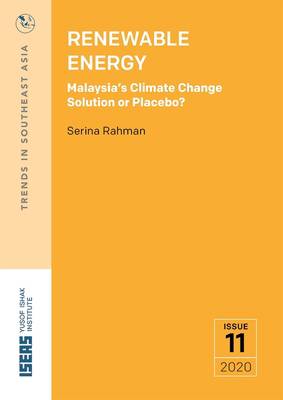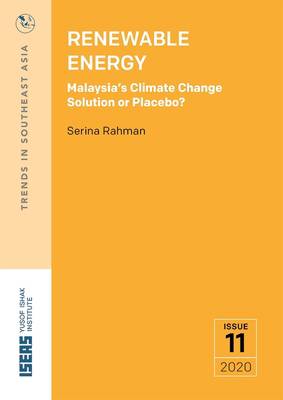
- Retrait gratuit dans votre magasin Club
- 7.000.000 titres dans notre catalogue
- Payer en toute sécurité
- Toujours un magasin près de chez vous
- Retrait gratuit dans votre magasin Club
- 7.000.000 titres dans notre catalogue
- Payer en toute sécurité
- Toujours un magasin près de chez vous
Description
Malaysia pledged to reduce greenhouse gas (GHG) emissions by 45 per cent by 2030 in relation to its 2005 GDP figure. The sectors listed as the main focus of this effort included: energy, industrial processes, waste, agriculture, land use, land-use change and forestry (LULUCF). Several initiatives under myriad governments have been launched to reduce Malaysia's climate change impacts; among those has been the emphasis on renewable energy (RE).
Malaysia's current energy mix relies heavily on coal and natural gas. Long-entrenched subsidies on these energy sources, coupled with greatly depreciating prices make it difficult for new RE producers to enter the market and increase their market share. This is in spite of positive developments in RE infrastructure and reduced RE material costs. Solar, biogas, biomass and mini-hydro have been put forward as the RE sources with the most potential, but all have issues of consistency and reliability. Because small energy generators cannot guarantee infallible energy production, they may not be the most viable options for the long term. Their size also denies them the economies of scale that would reduce their costs. Instead, these higher costs may be transferred to the consumer. Other issues include the competition for land in the development of large-scale solar farms, including the possible loss of community farmlands and hence livelihoods, if not displacement. A push for biomass and biogas as a source of energy might also lead to increased oil palm production to meet the need for consistent supplies of oil palm waste. Biogas from municipal landfills is made even more challenging given that Malaysian municipal waste is not sorted at source. One possible solution is the use of hybrid RE in rural areas, comprising a mix of micro-hydro, solar and diesel-based energy generation as a back-up. However an immediate win is to ensure energy efficiency and public education to encourage emissions reduction and climate change impacts on the individual consumer.Spécifications
Parties prenantes
- Auteur(s) :
- Editeur:
Contenu
- Nombre de pages :
- 36
- Langue:
- Anglais
- Collection :
Caractéristiques
- EAN:
- 9789814459952
- Date de parution :
- 31-07-20
- Format:
- Livre broché
- Format numérique:
- Trade paperback (VS)
- Dimensions :
- 143 mm x 213 mm
- Poids :
- 74 g







